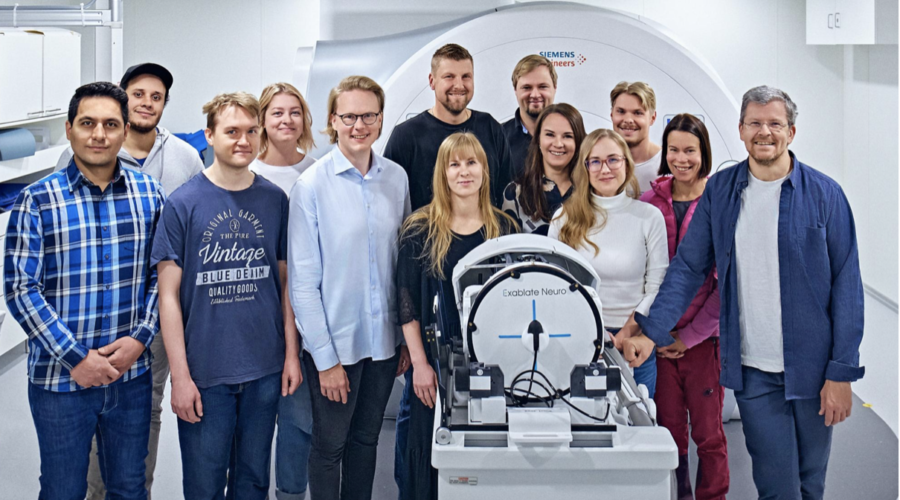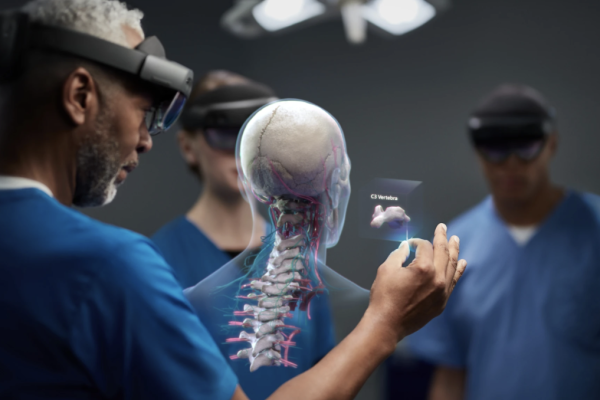Professor Vesa Kiviniemi is leading the Oulu Functional NeuroImaging (OFNI) research group at the University of Oulu and Oulu University Hospital. His team, which combines leading experts from the USA, Canada, China, Germany and other universities in Finland.
The research is pioneering ultrafast imaging techniques that detect early alterations in physiological brain pulsations, which are crucial for cerebral blood flow and perivascular cerebrospinal fluid (CSF) exchange within the blood-brain barrier. These innovations aim to enhance early diagnosis and treatment of neurological disorders such as Alzheimer’s disease, epilepsy, and brain tumours.
A significant focus of Professor Kiviniemi’s research is the glymphatic system, the brain’s waste clearance pathway. The team has developed non-invasive magnetic resonance imaging (MRI) methods to visualize and assess this system’s function. Notably, they have explored how physiological brain pulsations, including cardiovascular and vasomotor rhythms, influence glymphatic clearance. Their findings suggest that sleep enhances the power and synchrony of these pulsations, potentially facilitating more efficient waste removal from the brain.
In recent studies, the OFNI group has extended their research to the ocular system. They developed synchronous multimodal imaging tools, such as an eye-tracking functional eye camera compatible with MRI, to measure eye surface pulsations. Their research revealed that the human eye exhibits pulsations across vasomotor, respiratory, and cardiac frequencies, with respiratory pulsations being particularly prominent. These insights could lead to non-invasive monitoring techniques for ocular and neurological health.
The team has also investigated the relationship between physiological brain pulsations and neurological conditions. For instance, their research indicates that patients with primary central nervous system lymphoma exhibit instability in physiological brain pulsations, which correlates with increased mortality. This suggests that monitoring these pulsations could serve as a prognostic tool in such conditions.
Furthermore, the OFNI group has explored alterations in brain pulsations among individuals with psychosis. Their studies identified significant changes in brain regions’ pulsations, particularly between the upper frontal and lower posterior areas. These alterations may be linked to disrupted convection of metabolites via CSF and blood, potentially contributing to the altered perceptions experienced in psychosis.
Through these multidisciplinary efforts, the OFNI research group continues to advance our understanding of brain functions. Their innovative approaches hold promise for developing novel diagnostic and therapeutic strategies for various neurological diseases.
The Oulu Functional NeuroImaging (OFNI) research group, led by Professor Vesa Kiviniemi, maintains a robust network of international collaborations and partnerships that span multiple countries and well-regarded institutions that deepen the group’s research capabilities and global reach:
International Collaborations:
- United States: OFNI collaborates with Professor Maiken Nedergaard at the University of Rochester, focusing on the glymphatic system and its role in neurodegenerative diseases. Additionally, the group works with the Centre for Magnetic Resonance Research (CMRR) at the University of Minnesota, a leading center in biomedical MRI, to develop advanced imaging techniques.
- Canada: In partnership with Professor Kullervo Hynynen at Sunnybrook Health Sciences Centre, OFNI explores innovative methods for blood-brain barrier modulation and non-invasive brain treatments.
- China: Collaboration with Professor Yu-Feng Zang at Hangzhou Normal University involves studying brain functional connectivity and its alterations in various neurological conditions.
- Germany: OFNI maintains research ties with Professors Jürgen Hennig and Maxim Zaitsev at the University of Freiburg, as well as Professor Martin Walter at the University of Jena, focusing on advanced MRI methodologies and their applications in neuroimaging.
Collaborations within Finland:
- University of Helsinki: Collaborations with Professors Kari Alitalo, Matias Palva, Tuomas Lilius, and Terhi Lohela center on understanding cerebrovascular dynamics and their implications for brain health.
- University of Eastern Finland (UEF): OFNI works closely with Professors Tarja Malm, Heikki Tanila, and Olli Gröhn. Professor Gröhn’s group, for instance, is developing novel functional MRI methods to simultaneously image brain and spinal cord activity, which could enhance understanding of neurodegenerative diseases and pain mechanisms.
- Aalto University: Collaborations include projects with the Department of Neuroscience and Biomedical Engineering, focusing on advanced neuroimaging techniques and their applications in both research and clinical settings.
- University of Turku: OFNI engages with the Turku PET Centre, a leading institution in positron emission tomography imaging, to explore metabolic and functional aspects of brain diseases.
Photo: OFNI staff




